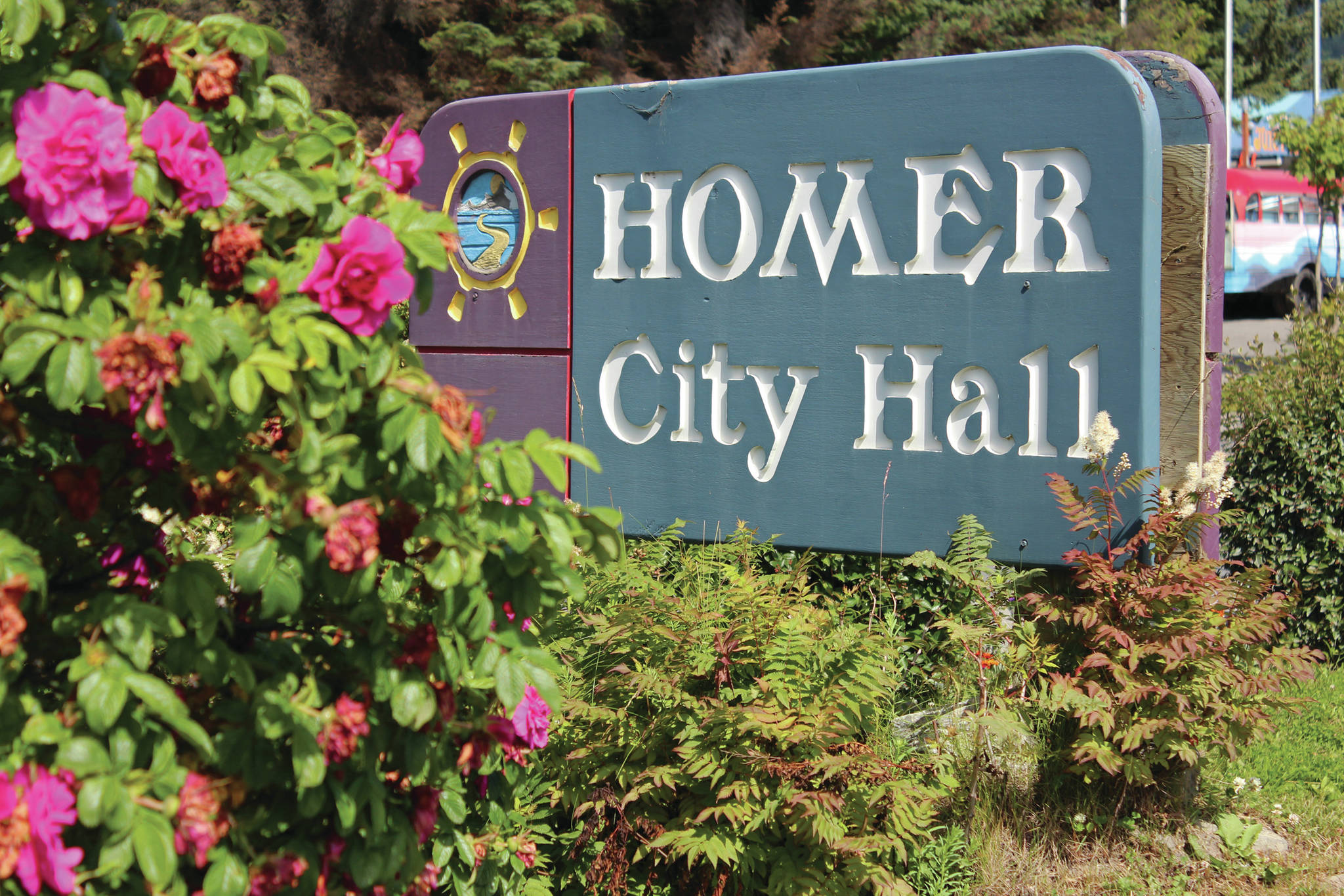Members of the Homer City Council began conversations about the city’s next budget during their Monday meeting, and also tackled the issue of whether a recently-sold city property qualifies for tax exemption.
The City of Homer has a two-year budget cycle. As departments work with the city manager to form their own budgets which will be added in to the overall document, the city council is beginning discussions with how to approach its next budget cycle in light of the divergent year 2020 represents.
During the committee of the whole meeting that proceeds the regular council meeting, City Manager Rob Dumouchel and Finance Director Elizabeth Walton briefed the council on different options for approaching the next budget, and asked for feedback. There was a consensus among the council members that, in light of the negative economic effects of the COVID-19 pandemic in 2020, the approach to the next budget should be conservative.
In particular, the council discussed revenue sources for the city’s general fund, and how the city should project them. Walton explained that the methodology she normally uses to forecast general fund revenues will need to reflect the abnormal revenues from 2020 in some way.
For example, Walton said she could stick with the normal methodology of using a three-year average to forecast general fund revenue, or amend that process to include the amended budget for Fiscal Year 2020 to reflect what actually happened that year. She presented the council with three draft general fund examples to discuss.
Included in the meeting packet was a breakdown of general fund revenue from 2019, what Walton called the most recent “normal” year for the city. It shows that sales tax and property taxes make up the lion’s share of general fund revenue — 46% and 27%, respectively. Administrative fees made up 15% of 2019 general fund revenues, while “other” revenues made up 12%, according to the figure.
Walton also noted that she updated the figures and data presented to the council to be consistent with its new two-year budget cycle, as opposed to its previous annual cycle.
Mayor Ken Castner asked whether the city has data on the number of new home builds in Homer over the last few years, to get an indication of property tax trends from year to year. Dumouchel said he would get that data organized for the council.
The city council will hold a work session on Monday, March 15 to continue working on the next budget.
Also at Monday’s meeting, the council voted to postpone a resolution that would exempt a local moose habitat conservation group from paying property taxes on a parcel of former city land the group recently purchased on Kachemak Drive. Kachemak Moose Habitat Inc. purchased a 21-acre parcel of land off Kachemak Drive that encompasses part of Lampert Lake, and the city previously passed a resolution and ordinance to to pay off the water and sewer assessments on that land for the organization.
According to Dumouchel’s city manager report at the meeting, the deed restriction was recorded on Feb. 24, and the assessments amounting to about $71,700 have been paid.
Kachemak Moose Habitat Inc. has applied for an exemption from the Kenai Peninsula Borough property tax on the land, according to the resolution discussed at Monday’s meeting, and wishes to apply for a similar exemption from Homer property taxes. According to the resolution, the city has exempted 15 parcels of land owned by the nonprofit organization from property taxes in the past.
Under borough code, property used “exclusively for community purposes” is exempt from property tax, according to the resolution. Some members of the council were concerned about the prospect of the city passing a resolution asserting that the habitat organization was exempt from borough property taxes before the borough itself has actually made that decision.
“I think it’s premature for us to say that this satisfies the borough code if they haven’t made that determination prior to us saying that,” said council member Heath Smith. “So putting this on hold and making some other considerations, I think, is probably in the best interest of everybody involved.”
Council member Rachel Lord questioned whether the city should even have to pass a resolution exempting an organization from local property taxes when the city code states that certain kind of properties shall be exempt, and that the borough’s assessing department has the final say as to whether the property qualifies.
“It seems to me that … it’s not a council decision, except if we were to propose to change this code,” Lord said.
City Attorney Michael Gatti said it’s clear that the borough assessor is the determinative factor in whether a tax exemption will be given. Local Homer code establishes a tax exemption, Gatti said, but the borough is the final adjudicator in that matter. The city can certainly give a recommendation, he said.
“But I don’t know that we want to make a determination prior to the process the assessor would employ to grant or deny an exemption,” Gatti said.
Council member Donna Aderhold, who sponsored the ordinance, moved to postpone it until the council’s March 22 meeting. There was no objection, so the resolution was postponed.
Through a resolution on its consent agenda, the council also extended the city’s emergency disaster declaration for the novel coronavirus pandemic through June 29.
Reach Megan Pacer at mpacer@homernews.com.


